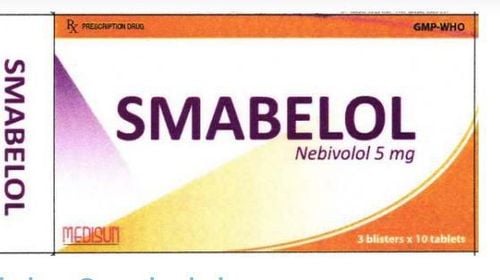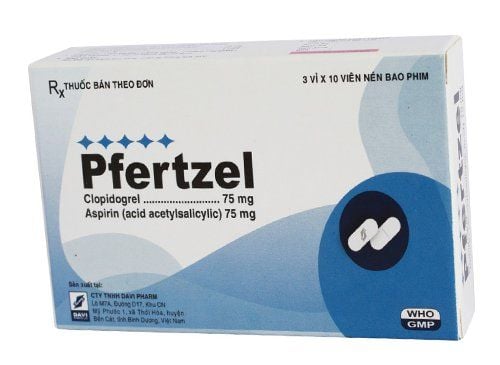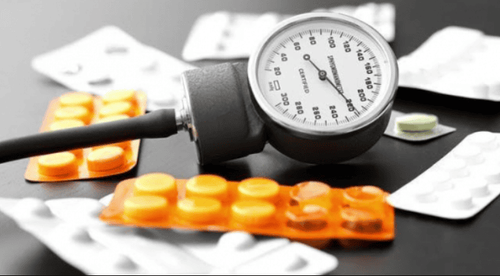This is an automatically translated article.
Calcium channel blockers are a group of drugs used very commonly in clinical practice. In addition to indications in hypertension, calcium channel blockers can be used in cases of angina pectoris, cardiac arrhythmias, etc. However, calcium channel blockers are safe for pregnant women, children and people. old or not?
1. How do calcium channel blockers work?
Calcium is needed for muscle contractions that take place throughout the body. Calcium ions enter muscle cells through calcium ion channels, which are small pores on the cell's surface. Calcium channel blockers help lower blood pressure by inhibiting the influx of calcium ions into cardiac and vascular smooth muscle cells. This inhibition will help dilate blood vessels, reduce peripheral resistance, reduce pressure in blood vessels and heart, thereby lowering blood pressure. In addition, calcium channel blockers also help slow the heart rate, reduce myocardial contractility, reduce cardiac output, and reduce atrioventricular conduction.
Many clinical trials have demonstrated the role of calcium channel blockers in lowering blood pressure and reducing the risk of cardiovascular events. Many recent studies have also shown that the drug helps to fight atherosclerosis, reduce left ventricular hypertrophy, improve cholesterol metabolism, etc. When used for a long time, it will not cause lipid disorders and affect blood sugar. Because of their many advantages, calcium channel blockers are increasingly being used.
MORE: Calcium channel blockers in the treatment of high blood pressure, cardiovascular disease
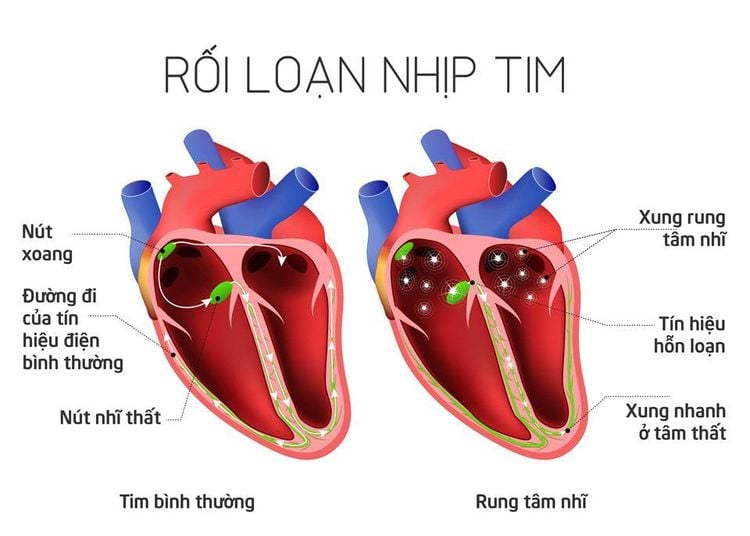
Rối loạn nhịp tim có thể được sử dụng thuốc nhóm chẹn kênh calci
In addition to being used in the treatment of high blood pressure, calcium channel blockers can also be used in other cases such as:
Angina arrhythmias Hypertrophic cardiomyopathy Coronary artery disease Diastolic heart failure Association Raynaud's syndrome In addition, calcium channel blockers can also prevent migraines.
2. What types of calcium channel blockers are there?
Calcium channel blockers are divided into two main groups: Dihydropyridine (DHP) and Nondihydropyridine (NDPH). Specifically:2.1. Dihydropyridine (DPH) Subclass The calcium channel blockers of the DPH class have preferential vascular effects over the heart. This class of drugs is widely used in the treatment of hypertension due to its vasodilating effect, reducing peripheral resistance to lower blood pressure. However, these drugs are less likely to reduce myocardial contractility and slow the heart rate. Some DPH calcium channel blockers such as Nifedipine, Amlodipine, Isradipine, Felodipine,...
Common side effects of DPH calcium channel blockers are peripheral edema due to excessive vasodilatation, headache , flushing, gum hyperplasia,...
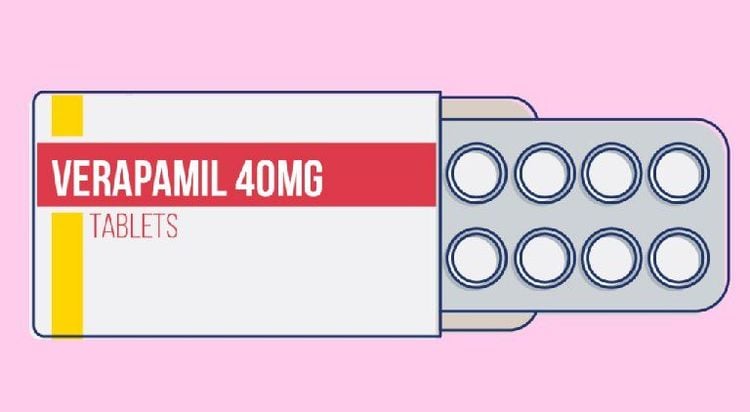
Sử dụng thuốc Verapamil có thể gây táo bón
2.2. Non-dihydropyridine (NDHP) Subclass
The NDHP subclass calcium channel blockers include Verapamil and Diltiazem. Unlike the DHP subclass, drugs in the NDHP subclass act primarily on the heart rather than on the pulse. Drugs acting to slow the heart rate should be often used in cases of patients with supraventricular tachycardia. The drug also has a coronary vasodilator effect, so it is used in cases of angina pectoris.Regarding side effects, drugs of the NDHP class rarely cause peripheral edema, but they often reduce myocardial contractility and bradycardia, so caution should be exercised in patients with left ventricular dysfunction. In addition, using Verapamil may cause constipation.
3.Some notes when using calcium channel blockers
To ensure the safe and effective use of calcium channel blockers, patients should note the following points:
Before using calcium channel blockers, tell your doctor about all medications you are taking. medications, including prescription drugs, over-the-counter drugs, herbal medicines, dietary supplements, etc. Your doctor will check for interactions between medications you're taking and calcium channel blockers to prevent interactions. adverse effects may occur. Patients should also inform their doctor if they plan to take any new medications during calcium channel blocker therapy. Use the medicine exactly as prescribed by your doctor, adhere to the correct dose, the number of times you take it each day. To make it easier to remember to take the medicine, the patient should take the medicine at the same time. Patients should regularly self-monitor their blood pressure at home to see how their body is responding to calcium channel blockers. Share with your doctor the results of self-exams during follow-up visits. Do not eat grapefruit or drink grapefruit juice while taking calcium channel blockers. Do not drink alcohol because alcohol can change the effect of the medicine or increase the risk of side effects.

Khi sử dụng thuốc chẹn kênh calci không nên uống rượu giúp giảm nguy cơ xảy ra các tác dụng phụ
4. Are calcium channel blockers safe for pregnant women, children and the elderly?
Calcium channel blockers can be used during pregnancy to control high blood pressure and preeclampsia. However, the use of the drug must be prescribed and closely monitored by a doctor. Patients should not arbitrarily use any drug during pregnancy because it may cause unwanted effects on the mother and fetus.
Calcium channel blockers can pass into breast milk, however studies have shown no adverse effects on nursing infants. Talk to your doctor about the benefits and risks of using this medication while you're breastfeeding. The safety of calcium channel blockers in children has not been established. However, no significant risks have been detected so far. Talk to your doctor about the benefits and risks of using calcium channel blockers in your child.
Calcium channel blockers can be used in the elderly. However, it should be noted that the risk of side effects from the drug is higher in the elderly (such as orthostatic hypotension) than in the younger population. Doctors often adjust the dose to reduce these side effects.
Calcium channel blockers are very popular drugs in clinical practice. The drug can be used by both children, pregnant women and the elderly. However, to avoid unwanted side effects, patients need professional advice by consulting doctors and pharmacists during use.
Please dial HOTLINE for more information or register for an appointment HERE. Download MyVinmec app to make appointments faster and to manage your bookings easily.
Reference sources: webmd.com, medicalnewstoday.com



